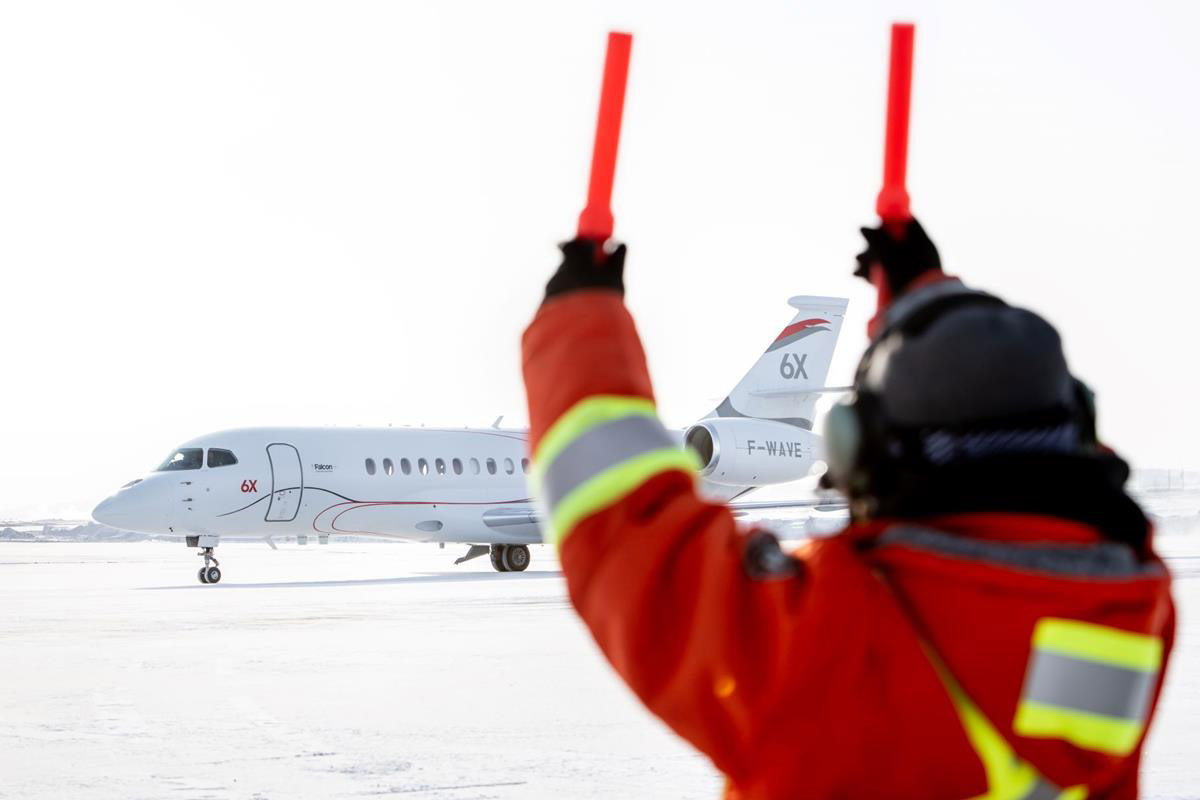The Falcon 6X has completed cold weather testing, passing another major milestone towards certification, expected later this year.

The test team of engineers consisting of technicians and pilots from Dassault Aviation and engine manufacturer Pratt & Whitney Canada endured bone-chilling temperatures as low as -37°C (-35° F) during the long trial runs in Iqaluit, a tundra town in the far north of Canada.
“The Falcon 6X continues to impress us with its performance and reliability as we move through the certification process,” said Carlos Brana, Dassault Aviation’s Executive Vice President of Civil Aircraft. “The aircraft operated flawlessly at the extreme temperatures an aircraft can be subjected to in the severest climate conditions. That includes engines, systems and low-temperature maintainability requirements.”
During the arctic ground test campaign, the aircraft was cold soaked for three successive nights and subjected to different start sequences each morning. Teams then powered up the aircraft and conducted engine ground runs and high-speed taxi tests. Ground tests were followed by a test flight during which anti-icing systems and handling qualities were checked and the stability of fuel and hydraulic fluid temperatures verified while the aircraft remained in a holding pattern flown at 10,000 feet.
These tests, which were completed at the end February, followed an initial series of cold weather tests in Iqaluit in December, when temperatures dipped as low as -25°C (-13°F). The 6X endured a total of 50 hours of Arctic cold tests and has now accumulated some 650 flight hours, and completed over 220 flights.
Dassault team members were ferried to Iqaluit aboard the 6X from the company’s Istres test center in the south of France and reported that the cabin was exceptionally quiet and comfortable with excellent connectivity en route. Over Canada, they encountered spectacular views of the aurora borealis, especially through the 6X’s unique skylight, a window installed at the top of the galley area.

